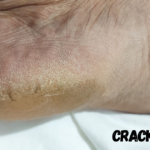How to Fix Dry Scalp, Dry scalp can be an uncomfortable and frustrating problem. It’s often characterized by itching, flaking, and tightness, which can lead to irritation and even hair loss if not properly addressed. If you’re wondering how to fix a dry scalp, you’re in the right place. In this guide, we’ll explore proven strategies and remedies to help you achieve a balanced, hydrated scalp that supports healthy hair growth.
Table of Contents
What Causes Dry Scalp?
Understanding the causes of dry scalp is the first step in fixing the issue. Here are some of the primary causes of a dry scalp:
- Weather Conditions: Cold, dry air and low humidity levels can strip moisture from your scalp, leading to dryness.
- Harsh Hair Products: Shampoos with sulfates, alcohols, and fragrances can cause irritation and reduce the natural oils on your scalp.
- Frequent Washing: Washing your hair too often removes the natural oils that your scalp needs to stay hydrated.
- Skin Conditions: Issues like eczema, psoriasis, or seborrheic dermatitis can lead to a persistently dry scalp.
- Diet Deficiencies: Lack of essential nutrients like vitamins and omega-3 fatty acids can affect scalp health.
Signs and Symptoms of Dry Scalp
Before diving into how to fix dry scalp, let’s identify some common signs and symptoms:
- Persistent Itching
- Flaking Skin (that’s not dandruff)
- Tight or Tingly Sensation on the Scalp
- Redness or Inflammation
- Hair Loss Due to Brittle Hair
If you experience any of these symptoms, it’s essential to take action to restore the moisture and health of your scalp.
How to Fix Dry Scalp: Effective Home Remedies
1. Coconut Oil Treatment
Coconut oil is a powerhouse when it comes to treating dry scalp. Its natural moisturizing properties penetrate the scalp, providing much-needed hydration.
- Instructions: Heat a small amount of coconut oil and gently massage it into your scalp. Allow it to sit for at least 30 minutes or, for a more intense treatment, leave it on overnight. Rinse it out thoroughly using a mild shampoo.
2. Apple Cider Vinegar Rinse
Apple cider vinegar (ACV) has antibacterial and antifungal properties that help balance the scalp’s pH levels, reducing dryness and flakiness.
- How to Use: Mix equal parts of apple cider vinegar and water. After shampooing, pour the mixture over your scalp and let it sit for a few minutes before rinsing it off. This helps restore the scalp’s natural acidity and soothes irritation.
3. Aloe Vera Gel
Aloe vera is known for its cooling and healing properties, making it a perfect remedy for dry and itchy scalps.
- How to Use: Apply pure aloe vera gel directly onto the scalp. Leave it on for 20-30 minutes before rinsing it out with lukewarm water. Aloe vera not only hydrates but also reduces inflammation and irritation.
4. Tea Tree Oil
Tea tree oil is a potent natural antifungal and antibacterial agent that can help treat dry scalp conditions caused by infections or dandruff.
- How to Use: Mix a few drops of tea tree oil with a carrier oil like coconut or olive oil. Massage this blend into your scalp, leave it on for about 15 minutes, and then rinse with a gentle shampoo.
5. Omega-3 Fatty Acids and Vitamins
Improving your diet can also play a significant role in fixing dry scalp. Foods rich in omega-3 fatty acids, vitamin E, and zinc promote scalp health and hydration.
- Foods to Include: Fatty fish (like salmon), nuts, seeds, avocados, and leafy greens. Supplements can also be considered if your diet lacks these nutrients.
Best Practices to Prevent Dry Scalp
1. Use a Sulfate-Free Shampoo
Sulfates can remove the natural oils from your scalp, causing dryness and irritation. Instead, select a gentle, sulfate-free shampoo that helps retain your scalp’s natural moisture balance.
2. Avoid Overwashing
Washing your hair every day can lead to a loss of natural oils that are crucial for a healthy scalp. Aim to wash your hair 2-3 times a week, using a mild shampoo and conditioner.
3. Stay Hydrated
Drinking enough water is essential for overall skin health, including your scalp. Aim to drink at least 8 glasses of water a day to keep your scalp hydrated from the inside out.
4. Protect Your Scalp from the Sun
Prolonged sun exposure can dry out your scalp and make it more prone to flakiness. Wear a hat or use a hair product with SPF to shield your scalp from the sun’s harmful rays.
5. Manage Stress Levels
Stress can trigger scalp issues, including dryness and dandruff. Incorporate stress-relief techniques like meditation, yoga, or regular exercise to keep your mind and body in balance.
When to See a Dermatologist
If you’ve tried these remedies and still experience severe dryness, itchiness, or hair loss, it might be time to see a dermatologist. They can help diagnose underlying conditions like eczema or psoriasis and recommend appropriate treatments.
The Importance of Scalp Care in Hair Health
A healthy scalp is the foundation for beautiful hair. Neglecting scalp care can lead to hair problems like breakage, thinning, and slow growth. Regularly moisturizing your scalp and using the right hair care products can make a significant difference in your overall hair health.
“Welcome to luminblooom.com!
Beauty, simplified. Remedies, reviews, and rituals for a radiant you.
Unlock your natural glow with our expert tips and tricks.







